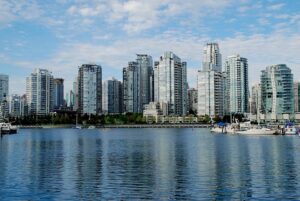Buying property in Canada as an expat (non-Canadian) involves several legal, financial, and administrative steps.
If you are looking to invest as an expat or high-net-worth individual, which is what I specialize in, you can email me (advice@adamfayed.com) or WhatsApp (+44-7393-450-837).
This includes if you are looking for a second opinion or alternative investments.
Some of the facts might change from the time of writing, and nothing written here is formal advice.
While the process is similar to that for Canadian residents, foreign ownership restrictions, tax implications, and financing requirements make it more complex for non-residents.
How to Buy Property in Canada as an Expat
Step 1: Determine Eligibility and Understand Canada Expat Rules
Before starting the property search, expats must confirm their eligibility under Canadian laws.
The Prohibition on the Purchase of Residential Property by Non-Canadians Act (2023) restricts non-Canadians from purchasing residential property in certain urban areas.

However, exemptions apply to specific groups, such as temporary residents with work permits, international students, and refugees.
Additionally, some provinces impose foreign buyer taxes or restrictions on land purchases, particularly in British Columbia, Ontario, and Prince Edward Island.
As an expat buying property in Canada, it is wise to consult with a real estate lawyer to ensure compliance with federal and provincial laws.
Step 2: Secure Financing or Proof of Funds
Expats can either purchase property with cash or apply for a mortgage from a Canadian lender. For mortgage financing:
- Down Payment: Non-residents typically need a minimum down payment of 35%.
- Documentation: Lenders require proof of income, international credit reports, bank statements, and valid identification (e.g., passport).
- Interest Rates: Non-resident borrowers may face higher interest rates due to increased lending risks.
For cash purchases, expats must provide proof of funds, including the source of income, to comply with anti-money laundering (AML) regulations.
Step 3: Engage a Real Estate Professional and Legal Counsel
Hiring a licensed real estate agent familiar with expat transactions is crucial for navigating the market. Agents assist with property searches based on legal eligibility, negotiating offers and terms, and coordinating inspections and appraisals.

Expats should also retain a real estate lawyer to review contracts, conduct title searches, and ensure compliance with foreign ownership laws and tax obligations.
Step 4: Obtain Mortgage Pre-Approval (If Applicable)
For expats seeking financing, securing mortgage pre-approval helps establish a budget and strengthens the buyer’s position when making an offer. Pre-approval requires submitting:
- Proof of income and employment.
- Credit history (Canadian or international).
- Bank statements and identification.
- Details of foreign assets, if applicable.
Pre-approval letters from lenders typically remain valid for 90–120 days.
Step 5: Find a Property and Make an Offer
After identifying a suitable property, the next step is submitting an Offer to Purchase (also known as an Agreement of Purchase and Sale). The offer includes:
- Purchase price and deposit amount (usually 5–10% of the price).
- Conditions (e.g., financing approval, home inspection, legal review).
- Closing date and other terms.
The seller may accept, reject, or counter the offer. Once both parties agree, the contract becomes legally binding, subject to any conditions outlined in the agreement.

Step 6: Conduct Due Diligence
Before finalizing the purchase, expats must perform thorough due diligence:
- Home Inspection: Identifies structural issues, safety concerns, or maintenance problems.
- Title Search: Ensures the property has a clear title, free from liens or legal disputes.
- Property Appraisal: Required by lenders to confirm the property’s value for mortgage approval.
- Condominium Status Certificate (if applicable): Provides details on the financial health of the condo corporation and potential fees.
Step 7: Fulfill Legal and Financial Obligations
Once conditions are met, the buyer’s lawyer will:
- Prepare the necessary legal documents for title transfer.
- Arrange for the payment of Property Transfer Tax and, if applicable, Non-Resident Speculation Tax (NRST).
- Ensure compliance with federal foreign ownership laws and any provincial tax requirements.
Expats must also transfer the balance of the purchase price (minus the deposit) through a Canadian trust account, typically managed by the lawyer.
Step 8: Closing the Transaction
On the closing date, the following steps occur:
- Transfer of Funds: The buyer’s lawyer transfers funds to the seller’s lawyer.
- Title Registration: The property title is registered with the provincial land registry office under the buyer’s name.
- Key Handover: The buyer receives the keys and legal possession of the property.

Expats should be prepared to pay additional closing costs, including:
- Legal fees: CAD 1,000–3,000.
- Land transfer tax: Varies by province.
- Title insurance: CAD 250–500 (optional but recommended).
- Adjustment costs: Covering pre-paid property taxes, utilities, or condo fees.
Step 9: Post-Purchase Compliance
After acquiring the property, expats must comply with ongoing obligations:
- Annual Property Taxes: Payable to the local municipality based on assessed property value.
- Income Tax Filing: If renting out the property, non-residents must file annual tax returns under Section 216 of the Income Tax Act.
- Non-Resident Withholding Tax: A 25% withholding tax applies to rental income unless reduced under a tax treaty.
- Form T2062: Required for non-residents when selling property to report capital gains and obtain a Certificate of Compliance from the Canada Revenue Agency (CRA).
Canada Property Tax: What to know
Expats purchasing property in Canada are subject to a range of taxes and fees, which vary depending on the property’s location, value, and use.

Canada Property Transfer Tax (PTT)
Most provinces impose a Property Transfer Tax (PTT) or similar levy at the time of purchase. The tax is calculated as a percentage of the property’s purchase price. For example:
- British Columbia (BC): 1% on the first CAD 200,000, 2% on the next CAD 1.8 million, and higher rates for properties over CAD 3 million.
- Ontario: Land Transfer Tax ranges from 0.5% to 2.5%, depending on the property’s value. Toronto has an additional municipal land transfer tax.
- Quebec: Known as the “Welcome Tax,” rates start at 0.5% and increase based on the property’s value.
Expats are generally not exempt from these taxes and may face additional levies if classified as foreign buyers.
Canada Non-Resident Speculation Tax (NRST)
In response to housing affordability concerns, some provinces have introduced the Non-Resident Speculation Tax (NRST), targeting foreign buyers:
- Ontario: A 25% NRST applies to residential properties purchased in the Greater Golden Horseshoe region.
- British Columbia: A 20% foreign buyers’ tax applies to properties in designated areas, including Metro Vancouver, Victoria, and Kelowna.
These taxes are applied in addition to the regular property transfer tax. Certain exemptions exist for temporary residents with valid work permits, refugees, and permanent residents under specific conditions.

Annual Property Taxes
All property owners in Canada, including expats, must pay annual property taxes to the local municipality.
The tax amount is based on the property’s assessed value and the municipal tax rate, which funds local services such as schools, waste management, and emergency services. Rates vary widely depending on the municipality and property type.
Capital Gains Tax
If an expat sells Canadian property at a profit, they may be subject to capital gains tax. For non-residents, 50% of the capital gain is taxable, and the CRA requires the seller to obtain a Certificate of Compliance (Form T2062) to report the sale.
- Primary Residence Exemption: Non-residents generally do not qualify for the primary residence exemption, meaning capital gains tax will apply even if the property was used as a primary residence while in Canada.
- Withholding Tax on Sale: Non-residents are subject to a 25% withholding tax on the gross sale price unless reduced through tax treaty provisions.
Goods and Services Tax (GST) or Harmonized Sales Tax (HST)
For newly constructed homes or substantial renovations, expats may need to pay GST (5%) or HST (13–15%), depending on the province. This tax does not apply to most resale residential properties, but commercial properties are subject to GST/HST.
Other Fees for Buying Property in Canada

- Legal Fees: For real estate transactions, legal fees typically range from CAD 1,000 to CAD 3,000.
- Inspection and Appraisal Fees: Home inspections cost around CAD 400–600, and appraisals may be required for mortgage approvals.
- Foreign Exchange Fees: If purchasing in CAD but funding the purchase with foreign currency, banks may charge conversion fees.
Foreign Exchange Regulations
Large real estate transactions often involve significant currency exchanges, especially for expats purchasing property with foreign income.
- Currency Controls: While Canada does not impose foreign exchange controls, buyers may face restrictions from their home countries regarding the transfer of large sums.
- Anti-Money Laundering (AML) Compliance: Canadian law requires financial institutions to report transactions over CAD 10,000 and conduct due diligence to prevent money laundering. Expats must provide proof of funds, including the source of income and banking history.
Real Estate Regulations and Licensing
Real estate transactions in Canada are regulated at the provincial level, and expats should ensure they work with a licensed real estate agent registered with the appropriate regulatory body, such as:
- Real Estate Council of Ontario (RECO) for Ontario.
- British Columbia Financial Services Authority (BCFSA) for BC.
- Organisme d’autoréglementation du courtage immobilier (OACIQ) for Quebec.
Agents help with market analysis, negotiations, and ensuring that the purchase process aligns with legal requirements.
Compliance with Local Zoning and By-laws
Each municipality in Canada has specific zoning laws that govern property use. Expats purchasing commercial properties, rental units, or land for development must ensure the property complies with:
- Zoning designations (residential, commercial, mixed-use, etc.).
- Building codes and safety regulations.
- Environmental protection laws, especially for waterfront or agricultural properties.
Non-compliance can lead to legal disputes, fines, or even demolition orders in severe cases.
Working with qualified expat financial advisors, including real estate lawyers, accountants, and licensed agents, is essential to navigate the complex landscape and ensure a smooth property acquisition process.
Pained by financial indecision?

Adam is an internationally recognised author on financial matters with over 830million answer views on Quora, a widely sold book on Amazon, and a contributor on Forbes.



